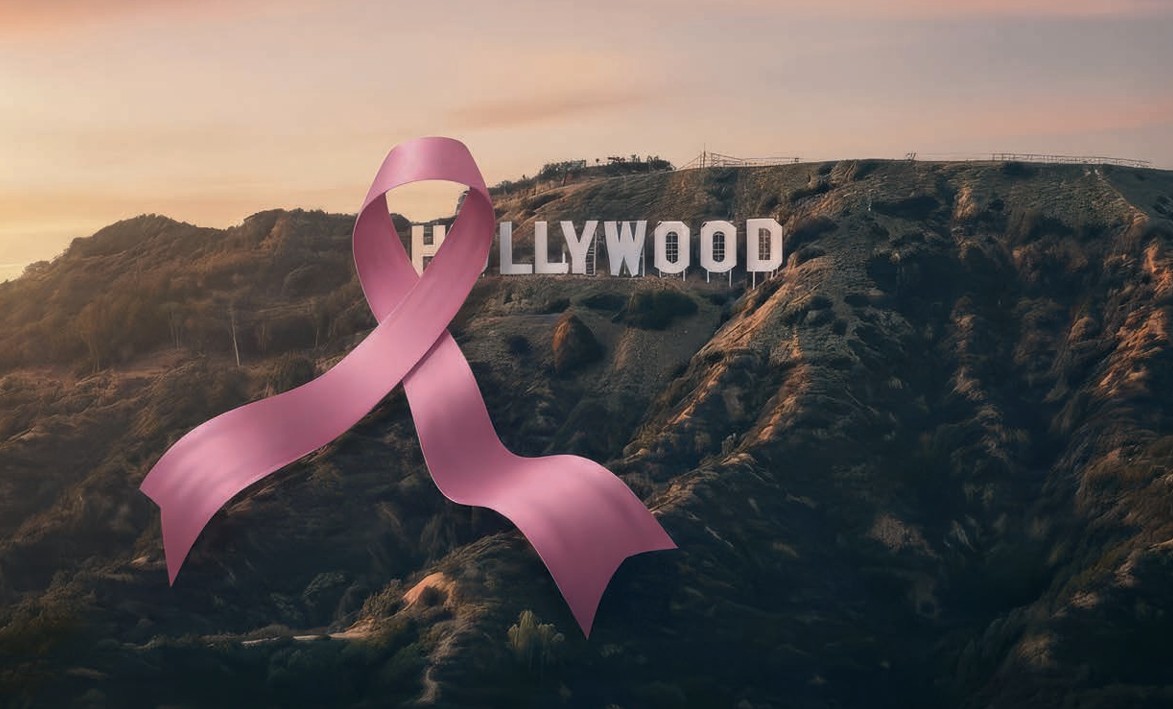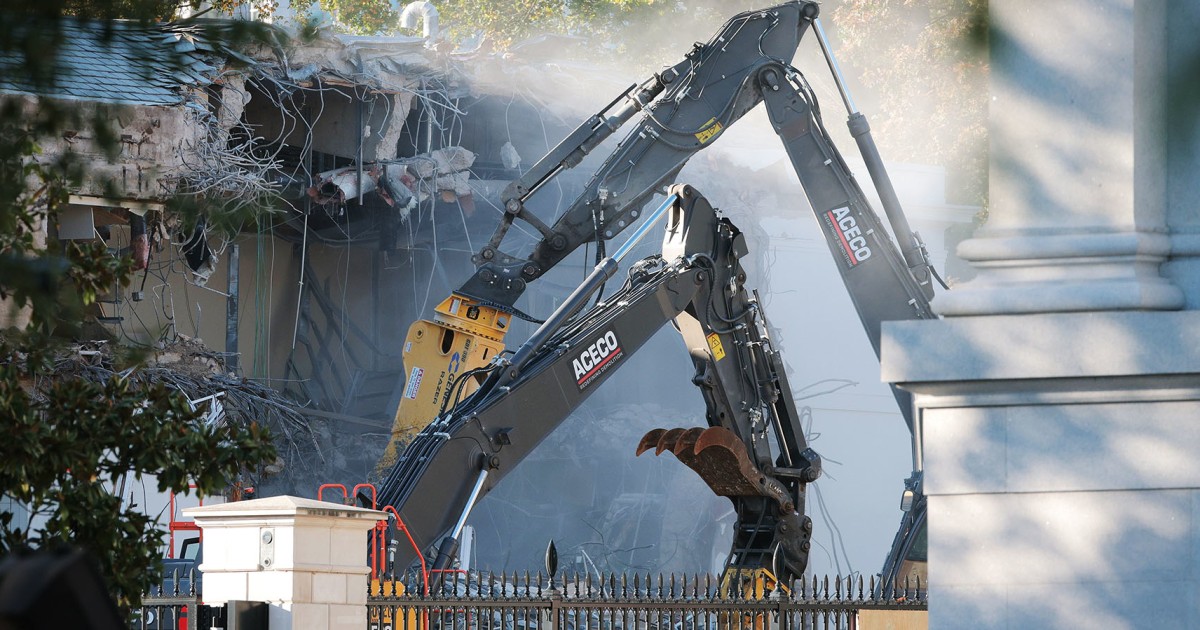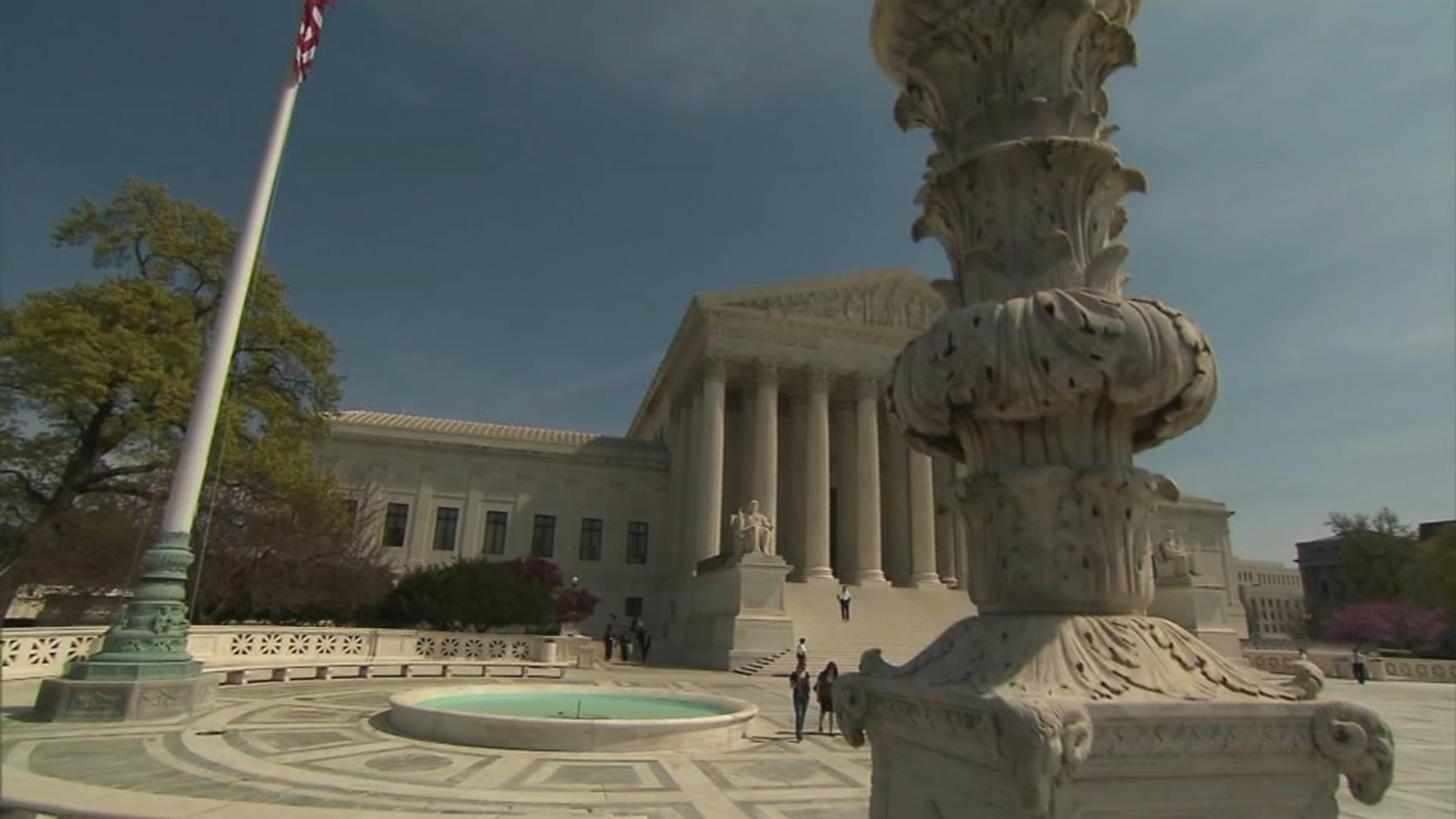Every October, pink ribbons remind us of breast cancer’s global impact. But statistics alone rarely move hearts. What resonates are stories — raw, human, and often told by those we already know from our screens, stages, or sports arenas. When celebrities speak openly about their diagnoses, scars, and survival, they transform awareness into empathy. Their stories remind us that cancer does not care about beauty, fame, or youth, and that resilience can take many forms: laughter, activism, or simply showing up every day.
In the October Issue of OncoDaily Magazine, we reflect on some of the most powerful stories — each one an invitation to see breast cancer not just as a disease, but as a shared human experience.
Linda Evangelista: From Silence to Survival
Linda Evangelista’s diagnosis came after a routine mammogram in 2018 revealed breast cancer. She underwent a double mastectomy, hoping the worst was behind her. But four years later, a recurrence was discovered – this time, she required chemotherapy, radiation, and more surgery. Through it all, Evangelista transformed fear into resilience. For someone whose career was built on physical perfection, her decision to share images of her scars was transformative: she views her surgical scars as “trophies,” symbols of survival and strength rather than defeat.
“I’m alive. I’m alive. I’m alive, and I’m going to do what I have to do. I’m going to fight because I don’t want it any other way. I’m not done.”
Today, Evangelista is using her platform for advocacy, urging women to prioritize screening and to see survivorship not as shame but as power.
Linda Evangelista and Breast Cancer: How She Went Against, How She Survived, and More
Cynthia Nixon: A Family Legacy and a Public Voice
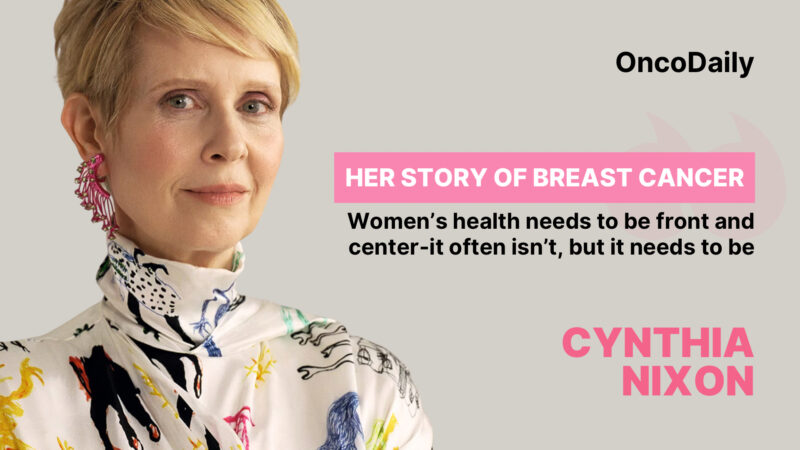
Sex and the City star Cynthia Nixon fought breast cancer quietly in 2006, only revealing it later. When she did, she used her platform to stress urgency: “You don’t want to take chances with your life.”
Cynthia Nixon’s breast cancer story cannot be separated from her mother’s. Ann Nixon fought the disease three times – the first when Cynthia was just 13. In 2014, Ann died at 82, shortly before Nixon filmed James White. This intergenerational experience drove Nixon’s vigilance and her decision to speak publicly about her own diagnosis.
Beyond acting, she became a vocal advocate with Susan G. Komen for the Cure, stressing the importance of early detection and equitable care. Nixon’s advocacy adds a generational perspective: breast cancer isn’t just an individual fight – it’s a family one, passed through stories, genetics, and memory.
Cynthia Nixon’s Breast Cancer Journey: How She Went Against, Survived, and More
Sarah Ferguson, Duchess of York: Royal Courage
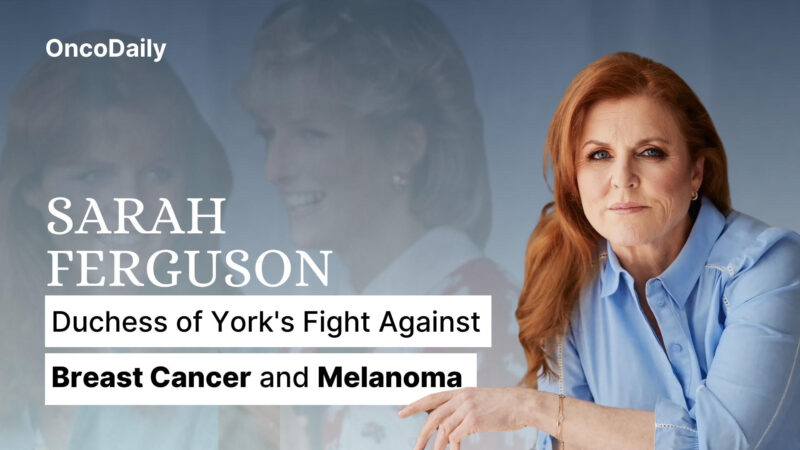
The Duchess of York revealed her breast cancer diagnosis after a routine mammogram. Her story resonates because of her honesty about fear and surgery, and because she used her royal profile to press the importance of early detection. Ferguson later called her diagnosis a “wake-up call” — reminding women that mammograms save lives, no matter one’s age, privilege, or position. By speaking candidly, she helped strip away stigma and gave breast cancer visibility from the heart of Britain’s royal family.
Sarah Ferguson and Breast Cancer: How She Went Against, How She Survived, and More
Olivia Munn: Saved by Genetics
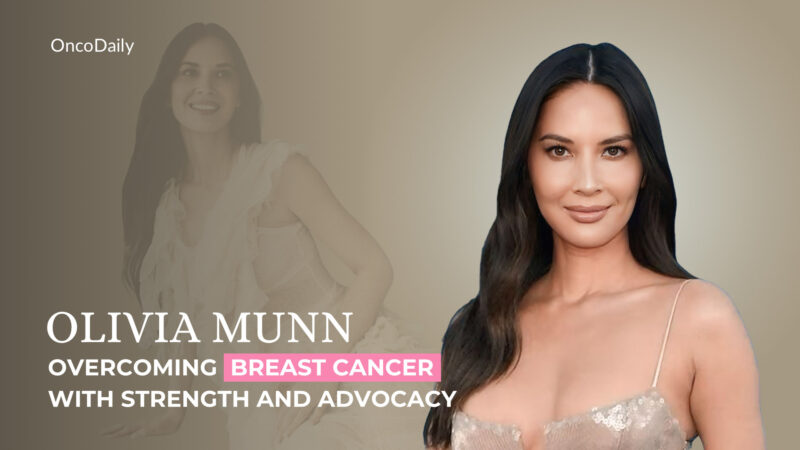
At just 43, Olivia Munn was blindsided when genetic testing revealed her high risk, despite a clear mammogram.
“My OBGYN saved my life,” she confessed.
The image of a young mother, grappling with both chemotherapy and caring for her toddler, struck a nerve with millions. By urging women to pursue genetic testing, Munn turned her private fear into public advocacy, showing how science can buy time – and life itself. Munn now uses her visibility to emphasize individualized care – reminding women that their voices belong in every medical decision.
Olivia Munn and Breast Cancer: How She Went Against, How She Survived, and More
Martina Navratilova: Champion On and Off the Court
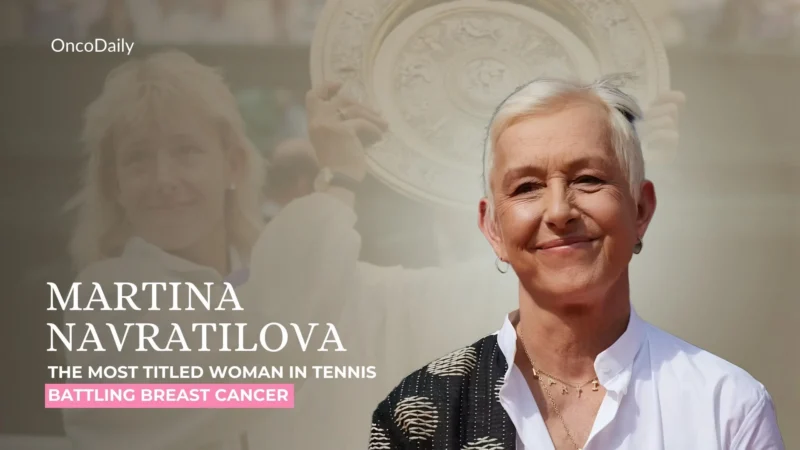
Martina Navratilova, tennis legend and a fierce athlete, described her 2010 diagnosis as “the biggest challenge I’ve ever faced.” Even after beating it, she was diagnosed again in 2023 with both throat and breast cancer. Her words – “This double whammy is serious, but fixable” – reveal an athlete’s mindset: face the opponent head-on. For fans, seeing her courage off the court was as inspiring as watching her victories on it.
Her story resonates not just because of her grit, but because of her humility in crediting early detection and medical teams with her survival.
Martina Navratilova Breast and Throat Cancer: How She Went Against, How She Survived, and More
Julia Louis-Dreyfus: “Today, I’m the One”
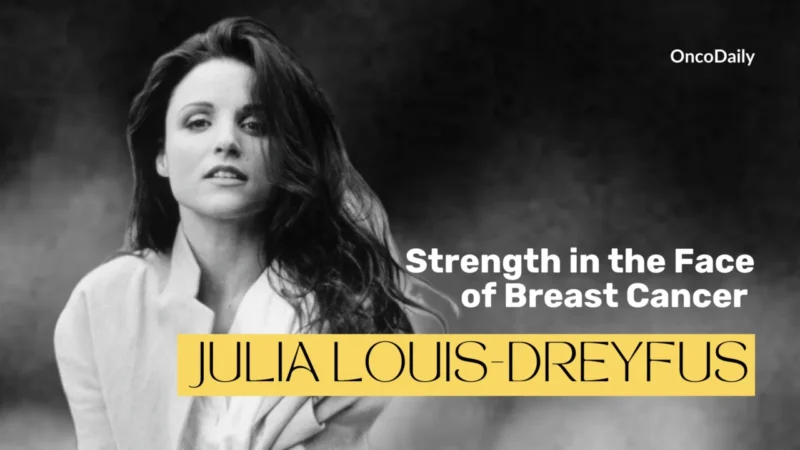
The day after winning an Emmy in 2017, Julia Louis-Dreyfus announced her diagnosis with stark honesty:
“One in eight women get breast cancer. Today, I’m the one.”
She shared the exhaustion of chemotherapy with humor, transforming her battle into a campaign for universal healthcare. Julia’s story blends vulnerability and political courage, turning personal illness into a collective cause. Her platform brought attention to both awareness and healthcare policy, especially the importance of access.
Julia Louis-Dreyfus and Breast Cancer: How She Went Against, How She Survived, and More
Wanda Sykes: Humor as Survival
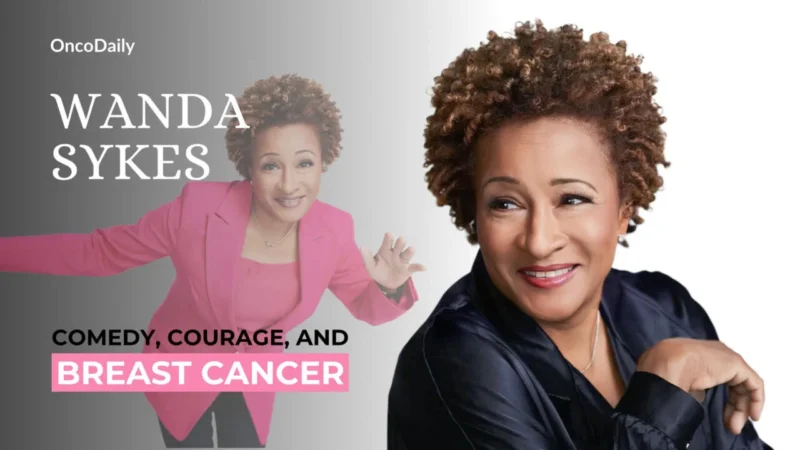
In 2011, Wanda Sykes revealed she had undergone a double mastectomy after DCIS was found. Her spin?
“I had the choice of keeping one boob. But I didn’t want to be lopsided.”
By making people laugh through fear, she showed that even cancer can’t rob a person of their voice. Her openness made preventive surgery less taboo, especially in communities where silence often reigns.
Wanda Sykes and Breast Cancer: How She Went Against, How She Survived, and More
Hoda Kotb: Cancer and Motherhood Rewritten
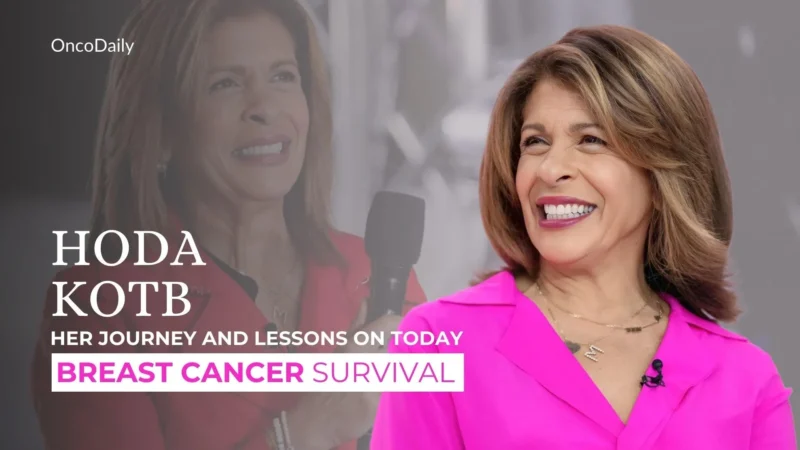
Diagnosed in 2007, Today host Hoda Kotb later said cancer led her to motherhood:
“Cancer gave me the gift of time.”
After treatment, she adopted two daughters, connecting survivorship with new beginnings. Her story resonates not just as survival, but as a reminder that cancer can redirect life in surprising, even beautiful ways.
At first she wanted to keep it private, but her colleague pushed her to share publicly. Doing so transformed Kotb into a voice of survivorship. She regularly highlights other women’s journeys on national television, framing survivorship as something communal. Her message resonates with anyone who has felt torn between silence and disclosure: sometimes telling your story is itself a way of healing.
Hoda Kotb and Breast Cancer: How She Went Against, How She Survived, and More
Jane Fonda: Activism Through Illness
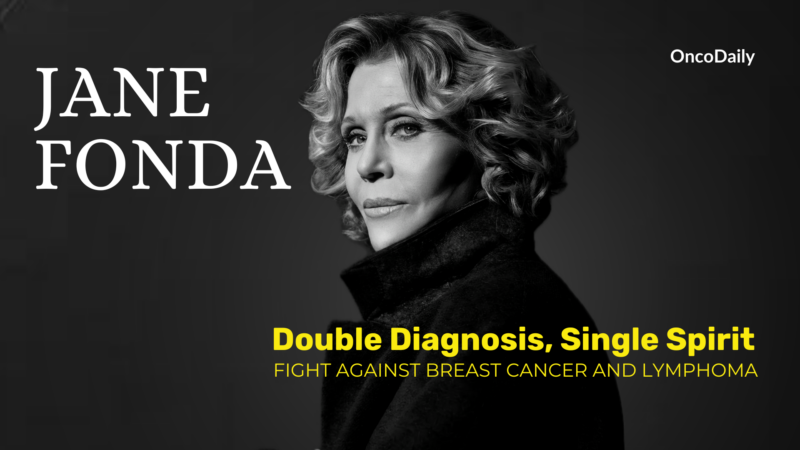
Jane Fonda approached her 2022 breast cancer diagnosis like she has every cause: by going public. “It’s very treatable,” she said, using her voice to emphasize screening and treatment – while also tying cancer awareness to climate advocacy. Fonda’s story reminds us that activism and illness can co-exist, and that vulnerability doesn’t cancel strength. At the age of 84, Fonda reminded the world that activism doesn’t retire. Even late in life, one can turn personal struggle into public service.
Jane Fonda Breast Cancer and Non-Hodgkin Lymphoma: How She Went Against, How She Survived, and More
Kathy Bates: Beyond Survival – Advocacy for Lymphedema
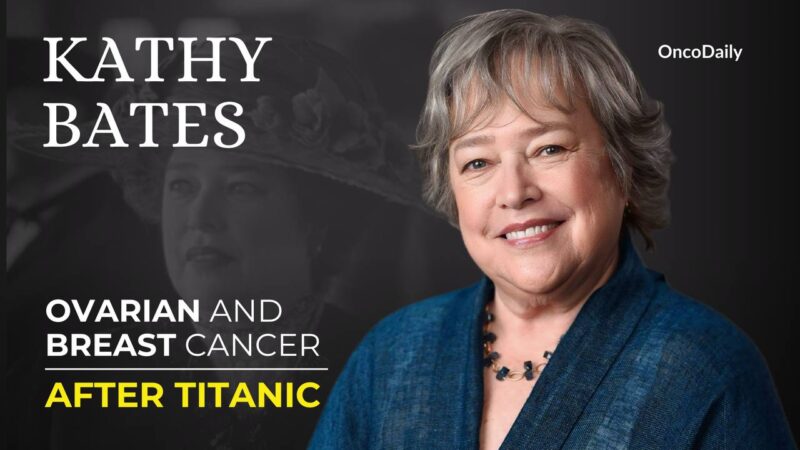
After surviving both ovarian and breast cancer, Oscar-winner Kathy Bates revealed she lives with lymphedema, often an invisible side effect. “I don’t want to hide anymore,” she declared. By becoming a fierce advocate for lymphedema awareness, Bates highlighted a part of cancer survivorship rarely discussed – one that affects millions long after treatment. Her story reminds what survivorship means – facing not only cancer but also its long-term complications, and using them as fuel for advocacy.
Kathy Bates Ovarian and Breast Cancer: How She Went Against, How She Survived, and More
Edie Falco: Strength Behind the Camera
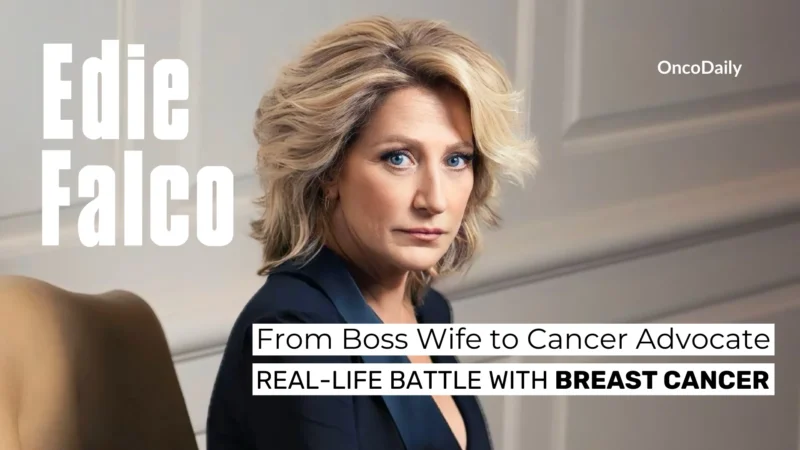
Edie Falco faced her 2003 breast cancer diagnosis in silence, even while filming The Sopranos. Later, she admitted,
“I was stunned – it came out of nowhere.”
Her decision to continue working, unflinching in her craft, showed resilience behind the tough roles she played. Later she explained that she didn’t want cancer to define her career. Once public, she spoke about how friends and humor carried her through. Sometimes survival itself is the message, especially when silence was once the shield.
Edie Falco and Breast Cancer: How She Went Against, How She Survived, and More
Christina Applegate: Living With the Aftermath
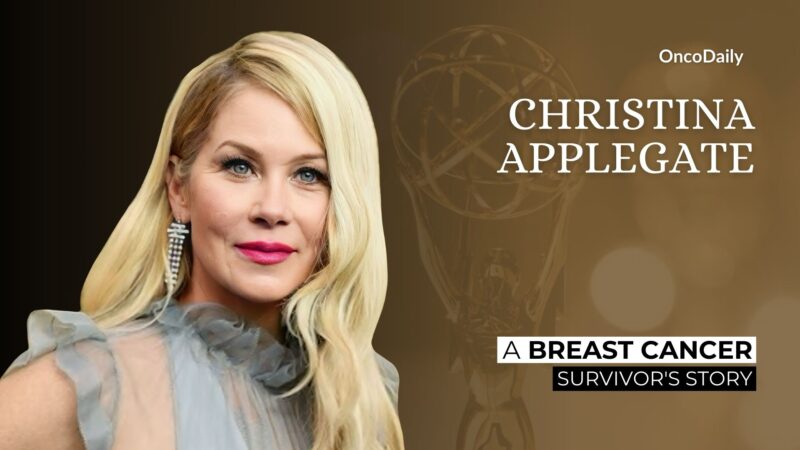
Christina Applegate was only 36 when she chose a double mastectomy after her diagnosis. Later discovering she carried the BRCA1 mutation, she responded with biting humor:
“I don’t have breasts — so why should I wear a bra?”
She has since faced multiple health challenges, including multiple sclerosis. Yet her advocacy remains steady: she founded Right Action for Women, offering financial assistance for high-risk women needing MRIs. Applegate’s way of laughing through fear made breast cancer a little less terrifying – and advocacy a lot more relatable.
Christina Applegate and Breast Cancer: How She Went Against, How She Survived, and More
Robin Roberts: Sharing Her Story on Live TV
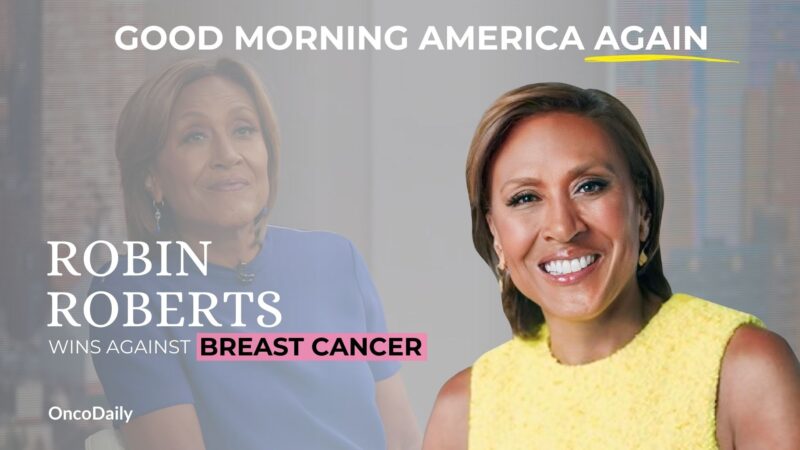
In 2007, millions watched Good Morning America anchor Robin Roberts return to TV bald from chemo. She turned her own suffering into a platform for others, later facing a bone marrow transplant for MDS.
“The best thing I can do is keep showing up,” she said.
By doing so, Roberts didn’t just survive cancer – she taught America what showing up in the face of adversity really looks like. She brought her journey into millions of homes, letting viewers see vulnerability on live TV. Roberts speaks about her family and faith as anchors, and she has used her national platform to encourage bone marrow registry sign-ups and cancer screening.
Robin Roberts and Breast Cancer: How She Went Against, How She Survived, and More
Jessie J: Too Young to Expect It
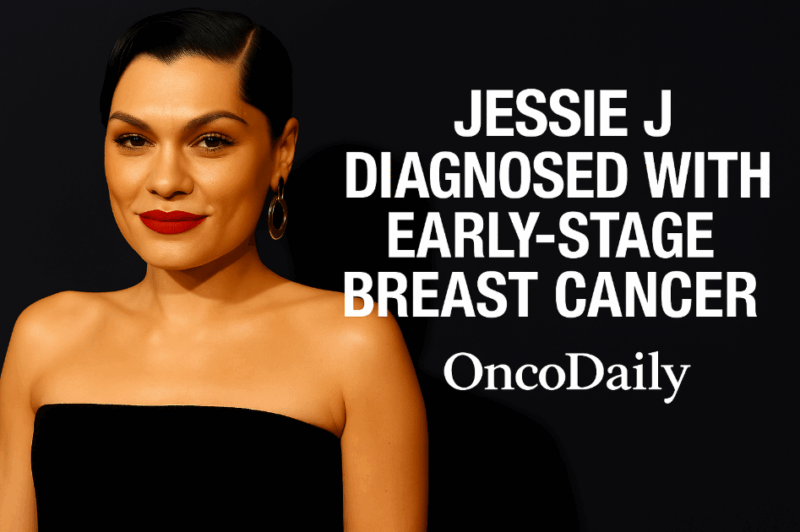
When Jessie J revealed her breast cancer, her voice – usually commanding arenas – trembled with vulnerability:
“I cried like I had never cried before.”
She was in her early 30s, a reminder that breast cancer does not respect age. For younger readers, Jessie’s story is a piercing wake-up call: being young doesn’t mean being safe, and early attention to symptoms can change outcomes.
Jessie J Diagnosed with Early-Stage Breast Cancer: What Is the Prognosis?
